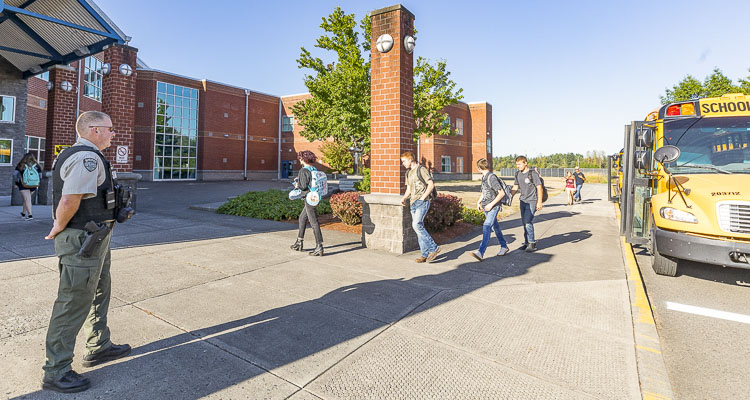
Liv Finne of the Washington Policy Center hopes the new legislature can catch up and provide a real ‘System of Support’ that families can use to access high-quality education services
Liv Finne
Washington Policy Center
Last week I participated in a live online debate with Tim Garchow, executive director of the Washington State School Directors Association. We were asked to debate the question: “What does it mean to have local control over educational decisions in Washington state?”

Local control describes the current system of electing school board directors to govern the schools in each one of the 295 school districts in Washington state. Our discussion was ably moderated by Elizabeth Van Clark of the Columbia Basin Badger Club in Pasco, Washington, and is available here.
In my remarks I pointed out parents have little to no control under this monopoly system of local control. Mr. Garchow took the opposite position, describing ways parents can ask for help from the schools, citing Multiple Systems of Support (MSS). Sure, parents can ask for help, but they have little recourse if district officials ignore their concerns.
In addition, our discussion ranged from the damaging effects of closing school for nearly two years during COVID, The Seattle Times editorial asking why school officials have spent only 9% of federal COVID relief funds on individual tutoring, plummeting test scores and other negative effects of closing schools for so long.
I concluded that to increase parental control in Washington state, lawmakers should follow the example of 32 states, the District of Columbia and Puerto Rico and allow more learning choices. Arizona has just passed a law making $7,000 available to every family who wants it, for the purpose of hiring tutors, buying textbooks, homeschooling, or paying private school tuition. These learning-choice programs place control of education squarely at the kitchen table, with Mom and Dad making these crucial decisions, not with some distant unnamed government office.
Public education is filled with happy-sounding buzz words like “local control,” “community empowerment,” “parental involvement” and “Multiple Systems of Support.” Sure, government people love them, but these terms mean nothing to families faced with the hard problems involved in educating and raising children.
Earlier this year Washington was poised to join other states when HB 1633, a bill to provide $10,000 or so to families who request it, was introduced. Hardliners in the legislature killed it.
A new legislature is going to meet in January. Maybe with some fresh faces and fresh thinking our state can catch up and provide a real “System of Support” (i.e. cash) that families can use to access high-quality education services.
Liv Finne is the director of the Center for Education at the Washington Policy Center.
Also read:
- Letter: The Charterist III — Concerning the powers of the Legislative BranchJohn Jay continues his Charterist series, arguing that Clark County’s legislative branch is structurally weak and lacks the resources to balance the executive, calling for reform in the next charter review.
- Opinion: ‘Today’s Democratic Party is not our father’s Democratic Party’Editor Ken Vance reflects on how today’s Democratic Party diverges from the values he associates with his father’s generation, citing issues like taxation, gender policies, and shifting ideology in Washington state politics.
- Opinion: ‘The Interstate Bridge project lacks billions in funding from both Oregon and Washington’Lars Larson criticizes Oregon’s funding decisions, highlighting the billions missing from both states for the Interstate Bridge replacement project and calling it a dead-end effort lacking Coast Guard approval.
- Opinion: When bad policy fails real peopleAmy Harris says Vancouver’s failure to address street safety led to a fire that shut down a beloved immigrant-owned restaurant.
- Opinion: Fantasy math – Why the CBO’s numbers don’t add upNancy Churchill argues the CBO’s deficit math ignores key growth effects and revenue streams, calling its models misleading and politically biased.










